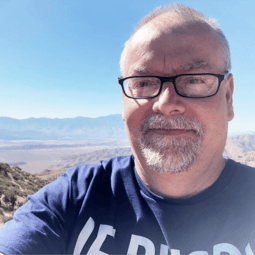
Roy Goodacre
Professor of Biological Chemistry, Institute of Systems, Molecular and Integrative Biology, University of Liverpool, UK
False

Professor of Biological Chemistry, Institute of Systems, Molecular and Integrative Biology, University of Liverpool, UK
A problem interdisciplinarians should tackle? One challenge I would like to see solved is the generation of computational models of mammalian systems. Many people are already striving to develop the so-called “Digital Human.” If we had a biology model of a system that encompasses integration and communication within cellular, organ, multi-organ, and whole animal processes, we could understand biochemistry and physiology in more detail. These advances could allow us to predict treatments for pathophysiological processes, understand the aging process, and perhaps predict how exposure to chemicals and varying environments affects this interconnected model of “life” over decades to different exposomes. This would be a game changer for medicine.
Interdisciplinary collaboration would be crucial for this type of work. We would need scientists with biological understanding of the problem, computational modelers, and analytical scientists to measure changes in functional analysis levels. This would also necessitate high precision and excellent accuracy for highly quantitative data.
The secret to a successful interdisciplinary collaboration? I don’t think there is any real secret. Successful interdisciplinary collaboration is all about learning each other’s language, listening, responding, discussing, and respecting participants – egos and agendas need to be left out of the equation. A collaboration should be based on trust and collegiality while allowing researchers to enjoy the process.
I’ve collaborated with many researchers and continue to work with some of the same people on various projects because we connected successfully, enjoy the challenges, and become great friends outside of the lab. I’ve definitely had circumstances where my collaborators’ egos won’t fit in the room, and that’s when I’ve dropped the project – life is too short and science should be enjoyable.
You only need to look at someone’s publication list (including my own) to see whether someone has and continues to work in teams. Personally, I find collaboration highly rewarding and enjoy reaching into other disciplines that normally wouldn’t be accessible to a lone researcher.
Science is indeed a team activity and we must encourage organizations to improve awards to reflect interdisciplinary projects. For example, if the Horizon Prizes award a group of individuals in a collaborative project rather than a sole scientist, we’re more likely to see enthusiasm for group studies.
Receive the latest pathologist news, personalities, education, and career development – weekly to your inbox.

False
False
False